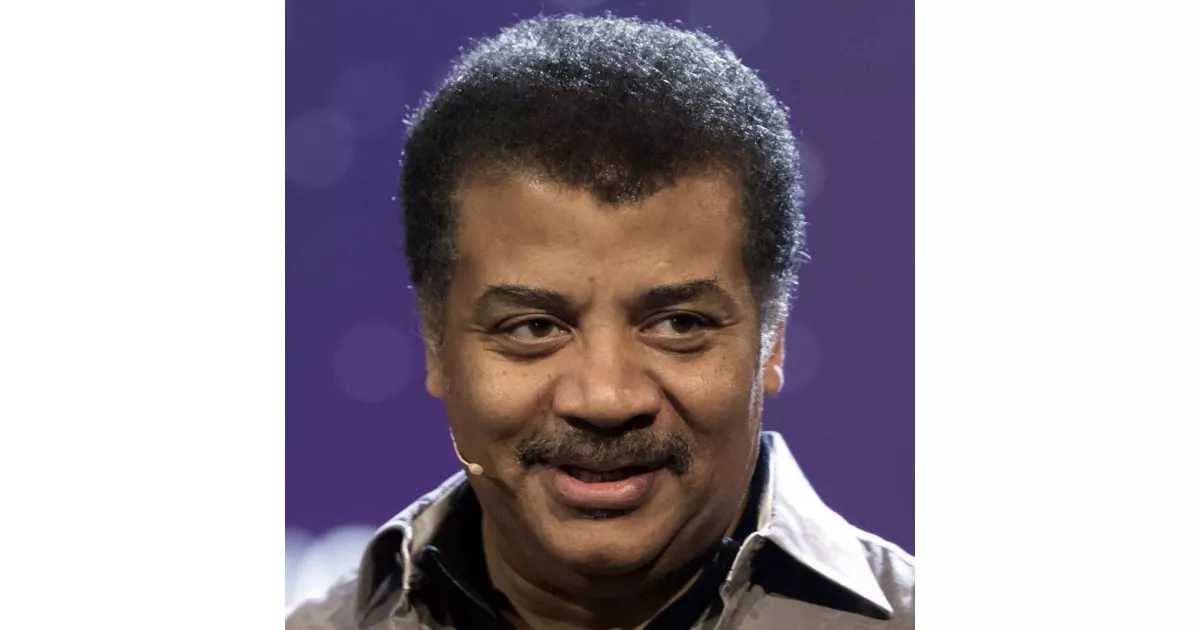Discover the career path of Neil deGrasse Tyson, from the first major opportunity to industry-changing achievements.
Neil deGrasse Tyson is a prominent American astrophysicist, science communicator, and author. He holds degrees from Harvard, University of Texas at Austin, and Columbia. After a postdoctoral position at Princeton, he joined the Hayden Planetarium in 1994 and Princeton's faculty. In 1996, he became the director of the Hayden Planetarium, overseeing its major reconstruction completed in 2000. Since 1996, he has served as the director of the Hayden Planetarium at the Rose Center for Earth and Space. In 1997 he founded the Department of Astrophysics at the American Museum of Natural History, where he has been a research associate since 2003.
1975: Visit with Carl Sagan
In 1975, Carl Sagan invited the 17-year-old Neil deGrasse Tyson to spend a day in Ithaca, solidifying Tyson's desire to become a scientist.
1986: Lecturer at University of Maryland
In 1986, Neil deGrasse Tyson became a lecturer in astronomy at the University of Maryland.
1987: End of Lectureship at University of Maryland
In 1987, Neil deGrasse Tyson's lectureship in astronomy at the University of Maryland came to an end.
1988: Graduate Program at Columbia University
In 1988, Neil deGrasse Tyson was accepted into the astronomy graduate program at Columbia University.
1989: Master of Philosophy Degree
In 1989, Neil deGrasse Tyson earned a Master of Philosophy degree in astrophysics from Columbia University.
1991: Postdoctoral Research at Princeton
In 1991, Neil deGrasse Tyson became a postdoctoral research associate at Princeton University.
1991: PhD in Astrophysics
In 1991, Neil deGrasse Tyson earned a PhD degree in astrophysics from Columbia University.
1994: Joins Hayden Planetarium and Princeton Faculty
In 1994, Neil deGrasse Tyson joined the Hayden Planetarium as a staff scientist and the Princeton faculty as a visiting research scientist and lecturer.
1994: Joins Hayden Planetarium
In 1994, Neil deGrasse Tyson joined the Hayden Planetarium as a staff scientist while being a research affiliate at Princeton University.
June 1995: Acting Director of Hayden Planetarium
In June 1995, Neil deGrasse Tyson became the acting director of the Hayden Planetarium.
1995: Universe Column for Natural History Magazine
In 1995, Neil deGrasse Tyson began writing monthly essays in the "Universe" column for Natural History magazine.
1995: Begins Writing "Universe" Column
In 1995, Neil deGrasse Tyson began writing the "Universe" column for Natural History magazine.
1996: Director of Hayden Planetarium
In 1996, Neil deGrasse Tyson became the director of the Hayden Planetarium and oversaw its reconstruction project.
1996: Coins the term "Manhattanhenge"
In 1996, Neil deGrasse Tyson coined the term "Manhattanhenge", inspired by the Stonehenge alignment, to describe the Manhattan sunset phenomenon.
1997: Founds Department of Astrophysics
In 1997, Neil deGrasse Tyson founded the Department of Astrophysics at the American Museum of Natural History.
1998: Publishes Merlin's Tour of the Universe and Just Visiting This Planet
In 1998, Neil deGrasse Tyson published "Merlin's Tour of the Universe" and "Just Visiting This Planet", based on his StarDate magazine column.
2000: Reconstruction Project Completion
In 2000, the $210 million reconstruction project of the Hayden Planetarium, overseen by Neil deGrasse Tyson, was completed.
2000: Completion of Planetarium Reconstruction
In 2000, the $210 million reconstruction project of the Hayden Planetarium, overseen by director Neil deGrasse Tyson, was completed.
2001: Government Commission on Aerospace Industry
In 2001, Neil deGrasse Tyson served on a government commission on the future of the U.S. aerospace industry.
2002: Popularizes "Manhattanhenge"
In 2002, in his "City of Stars" column for Natural History magazine, Neil deGrasse Tyson popularized the term "Manhattanhenge" to describe the alignment of the sunset with Manhattan's street grid.
2003: Research Associate in Astrophysics
In 2003, Neil deGrasse Tyson became a research associate in the Department of Astrophysics at the American Museum of Natural History.
2004: Hosts Origins Miniseries
In 2004, Neil deGrasse Tyson hosted the four-part Origins miniseries of the PBS Nova series and co-authored the companion book.
2004: Appointed to Space Exploration Commission and Awarded NASA Medal
In 2004, Neil deGrasse Tyson was appointed to the President's Commission on Implementation of United States Space Exploration Policy and received the NASA Distinguished Public Service Medal.
2005: End of Universe Column
In 2005, Neil deGrasse Tyson's monthly essays in the "Universe" column for Natural History magazine came to an end.
November 2006: Speaker at Beyond Belief Symposium
In November 2006, Neil deGrasse Tyson attended and was a speaker at the Beyond Belief: Science, Religion, Reason and Survival symposium.
2006: Hosts NOVA ScienceNow
In 2006, Neil deGrasse Tyson began hosting the television show NOVA ScienceNow on PBS.
2006: Views on Science, Spirituality, and the Spirituality of Science
In 2006, Neil deGrasse Tyson expressed his views on science and spirituality, including defining spirituality as a feeling connecting one to the universe beyond simple vocabulary. He also argued that some great historical scientists' belief in intelligent design limited their scientific inquiries.
2007: Appearance on Wait Wait... Don't Tell Me!
In 2007, Neil deGrasse Tyson appeared on the NPR radio quiz program Wait Wait... Don't Tell Me!
2007: Publishes "Death by Black Hole"
In 2007, Neil deGrasse Tyson published "Death by Black Hole", a book containing essays from his "Universe" column.
2007: Keynote Speaker at Deerfield Academy Dedication Ceremony
In 2007, Neil deGrasse Tyson was the keynote speaker at the dedication ceremony of Deerfield Academy's new science center, the Koch Center in Massachusetts. He emphasized the impact of science on the twenty-first century and the value of investments in science.
2008: Inclusion in Documentary Film
In 2008, footage that Neil deGrasse Tyson filmed on September 11, 2001, was included in the documentary film 102 Minutes That Changed America.
April 2009: Narrates 400 Years of the Telescope
In April 2009, Neil deGrasse Tyson narrated the documentary 400 Years of the Telescope, which premiered on PBS.
May 2009: StarTalk Radio Show Launch
In May 2009, Neil deGrasse Tyson launched a one-hour radio talk show called StarTalk, co-hosted with Lynne Koplitz, on KTLK AM in Los Angeles and WHFS in Washington DC.
2009: StarTalk Podcast Launch
In 2009, Neil deGrasse Tyson launched the weekly podcast StarTalk.
March 2010: Advocacy for NASA Funding
In March 2010, Neil deGrasse Tyson addressed the issue of NASA funding, arguing that the agency is underfunded. He noted that the public often overestimates the amount of tax revenue allocated to NASA, clarifying that it is only half a penny on the dollar.
December 2010: StarTalk Radio Resurrected
In December 2010, the StarTalk radio show was resurrected with new co-hosts Chuck Nice and Leighann Lord.
April 2011: Keynote Speaker at Phi Theta Kappa Convention
In April 2011, Neil deGrasse Tyson was the keynote speaker at the 93rd International Convention of the Phi Theta Kappa International Honor Society, delivering a lecture with James Randi entitled Skepticism.
May 2011: Donation of Guest Speaker Income
In May 2011, on a StarTalk Radio show, Neil deGrasse Tyson stated that he donates all income earned as a guest speaker. He also frequently participates in Reddit's AMAs.
2011: End of Nova ScienceNow Hosting
In 2011, Neil deGrasse Tyson ended his role as the host of the PBS program Nova ScienceNow.
March 2012: Testimony Before the United States Senate Science Committee
In March 2012, Neil deGrasse Tyson testified before the United States Senate Science Committee.
November 7, 2012: Action Comics #14 Published
On November 7, 2012, Action Comics #14, featuring Neil deGrasse Tyson, was published. In the story, Tyson determines that Superman's home planet, Krypton, orbited the red dwarf LHS 2520 in the constellation Corvus.
2012: StarTalk YouTube Series Announcement
In 2012, Neil deGrasse Tyson announced that he would appear in a YouTube series based on his radio show StarTalk, to be distributed on the Nerdist YouTube Channel.
January 2013: Appearance in Action Comics #14
In January 2013, Neil deGrasse Tyson appeared in Action Comics #14, where he determined that Superman's home planet, Krypton, orbited the red dwarf LHS 2520 in the constellation Corvus.
February 28, 2014: Celebrity Guest at White House Student Film Festival
On February 28, 2014, Neil deGrasse Tyson was a celebrity guest at the White House Student Film Festival.
March 8, 2014: SXSW Interactive Keynote Presentation
On March 8, 2014, Neil deGrasse Tyson made a SXSW Interactive keynote presentation at the Austin Convention Center.
June 3, 2014: Co-Review of Gravity in CinemaSins Episode
On June 3, 2014, Neil deGrasse Tyson co-reviewed the movie Gravity in a CinemaSins episode.
2014: Revival of Cosmos Series
In 2014, Neil deGrasse Tyson helped revive Carl Sagan's Cosmos: A Personal Voyage television series, presenting Cosmos: A Spacetime Odyssey on both FOX and the National Geographic Channel.
2014: Cosmos: A Spacetime Odyssey Hosting
In 2014, Neil deGrasse Tyson hosted the television series Cosmos: A Spacetime Odyssey, a successor to Carl Sagan's 1980 series.
April 20, 2015: StarTalk Late-Night Talk Show
On April 20, 2015, Neil deGrasse Tyson began hosting a late-night talk show entitled StarTalk on the National Geographic Channel.
September 29, 2015: Co-Review of Interstellar on CinemaSins
On September 29, 2015, Neil deGrasse Tyson co-reviewed the movie Interstellar on CinemaSins.
2015: Appearance on Wait Wait... Don't Tell Me!
In 2015, Neil deGrasse Tyson appeared on the NPR radio quiz program Wait Wait... Don't Tell Me!
2015: StarTalk TV Show Airs
In 2015, a spin-off of Neil deGrasse Tyson's podcast, also called StarTalk, began airing on National Geographic.
March 31, 2016: Co-Review of The Martian on CinemaSins
On March 31, 2016, Neil deGrasse Tyson co-reviewed the movie The Martian on CinemaSins.
2016: Space Odyssey Video Game Development
Around 2016, Neil deGrasse Tyson was co-developing Neil deGrasse Tyson Presents: Space Odyssey a sandbox video game with Whatnot Entertainment.
2016: Narration and Script Supervision for Food Evolution
In 2016, Neil deGrasse Tyson narrated and was a script supervisor for the science documentary Food Evolution. He also made a guest appearance on the Avenged Sevenfold album The Stage, delivering a monologue on the track "Exist".
2017: Guest Appearances on Albums
In 2017, Neil deGrasse Tyson appeared on Logic's album Everybody as God and on Musiq Soulchild's album Feel the Real. Specifically, he was credited on the song "AfricAryaN" on Logic's album and on "The Moon" on Musiq Soulchild's album.
2017: Publishes "Astrophysics for People in a Hurry"
In 2017, Neil deGrasse Tyson published "Astrophysics for People in a Hurry", a book containing essays from his "Universe" column.
2018: Guest Appearances on Television
In 2018, Neil deGrasse Tyson made a second guest appearance on The Big Bang Theory with Bill Nye and had guest appearances in other shows, including Gravity Falls, Brooklyn Nine-Nine, and The Simpsons.
March 9, 2020: Returns with Cosmos: Possible Worlds
On March 9, 2020, Neil deGrasse Tyson returned with a follow-up season of Cosmos titled Cosmos: Possible Worlds.
Mentioned in this timeline

George W Bush the rd U S President - is...

The White House located at Pennsylvania Avenue NW in Washington...
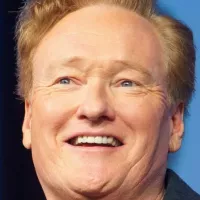
Conan O'Brien is a prominent American television personality renowned for...
NASA the National Aeronautics and Space Administration is the U...
National Public Radio NPR is an American public broadcasting organization...
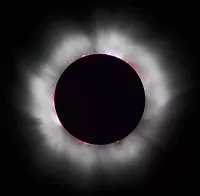
A solar eclipse happens when the Moon moves between the...
Trending
14 minutes ago South Korea's Kospi Plunges Amid Middle East Tensions, Triggering Regional Stock Selloff
15 minutes ago US & Ecuadorian Forces Combat Drug Trafficking; General Donovan Visits; Curfew Imposed.

15 minutes ago Brandon Ingram shines with well-rounded performance, playmaking improves for the Raptors.
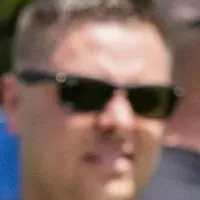
1 hour ago Giants to cut Bobby Okereke before free agency, impacting salary cap space.

1 hour ago Jarrett Allen's Dominance: Crushing Fears, Surging Performance, and Harden Upgrade Impact
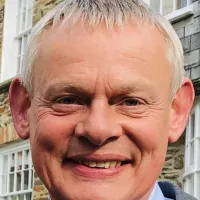
1 hour ago Martin Clunes debuts in 'Best Medicine', discusses Doc Martin role, tense appearance.
Popular

Hillary Diane Rodham Clinton is a prominent American politician lawyer...

Jesse Jackson is an American civil rights activist politician and...

Ken Paxton is an American politician and lawyer serving as...

Jim Carrey is a Canadian-American actor and comedian celebrated for...

Bill Clinton served as the nd U S President from...

XXXTentacion born Jahseh Dwayne Ricardo Onfroy was a controversial yet...
